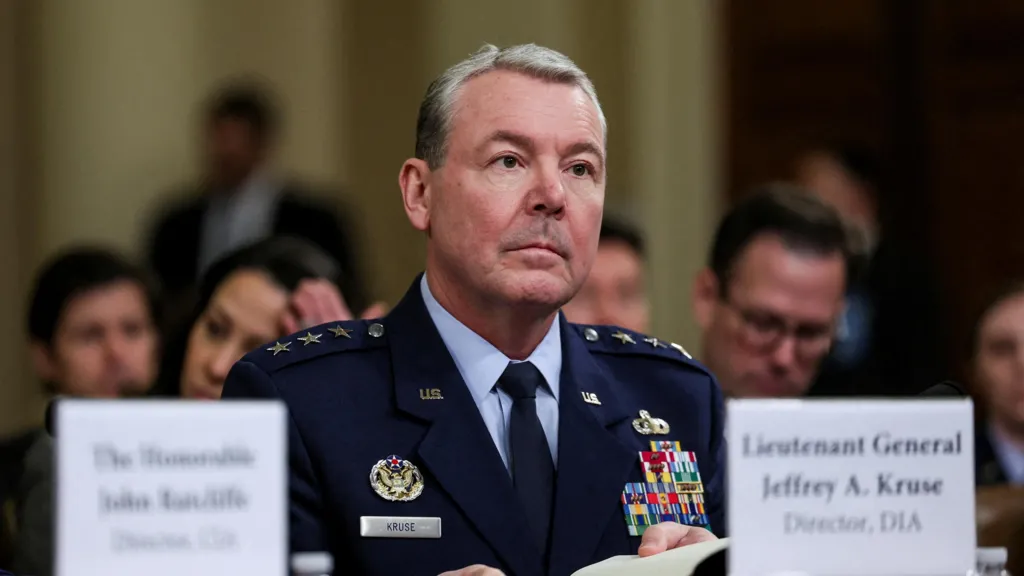In a significant shake-up within the US military intelligence community, Defense Secretary Pete Hegseth has terminated Lt Gen Jeffrey Kruse’s tenure as director of the Defense Intelligence Agency (DIA). This decision comes mere weeks after a White House dismissal of a leaked DIA analysis that downplayed the effectiveness of recent US strikes on Iran’s nuclear infrastructure.
The Pentagon confirmed Kruse’s removal in an official statement, noting that he will no longer lead the agency responsible for providing critical military intelligence to support global operations. Alongside this, two other high-ranking military leaders have been relieved of their duties, including the chief of US Naval Reserves and the commander of Naval Special Warfare Command. While no explicit reasons were provided for these actions, sources indicate a connection to ongoing tensions over intelligence assessments.
The controversy stems from a June DIA report that concluded American airstrikes had only delayed Iran’s nuclear ambitions by a few months, contradicting President Donald Trump’s assertion that the targets were “completely destroyed.” Trump labeled the evaluation as “flat out wrong” and criticized media coverage as an effort to undermine a landmark military achievement. During a NATO summit, Hegseth echoed these sentiments, describing the report as based on insufficient data and announcing an FBI investigation into the leak.
Kruse’s departure highlights broader concerns about the intersection of intelligence analysis and political expectations. The DIA, a key component of the Pentagon’s intelligence apparatus, focuses on technical and operational insights distinct from civilian agencies like the CIA. This firing adds to a pattern of personnel changes under the current administration, where officials perceived as diverging from executive viewpoints face swift repercussions.
READ MORE: Pakistani Students in US Face New Rules and Restrictions
Critics, including US Senator Mark Warner, have voiced alarm over what they see as a politicization of intelligence roles. Warner described the move as indicative of viewing analytical work through a lens of loyalty rather than objective national defense. Similar instances include the July dismissal of Labor Statistics Commissioner Erika McEntarfer after unfavorable economic data and the April ousting of NSA Director General Timothy Haugh, accompanied by staff reductions at the National Security Council.
Earlier this year, Hegseth also oversaw the removal of Air Force General C.Q. Brown and several other top brass, signaling a concerted effort to align military leadership with administration priorities. As the US navigates complex geopolitical challenges, including Iran’s nuclear pursuits and regional stability, these shifts raise questions about the integrity and independence of intelligence processes.
This development underscores the delicate balance between military expertise and policy directives, potentially impacting future assessments on threats from adversaries like Iran. Observers are watching closely for how these changes might influence operational readiness and strategic decision-making in an increasingly volatile international landscape.









